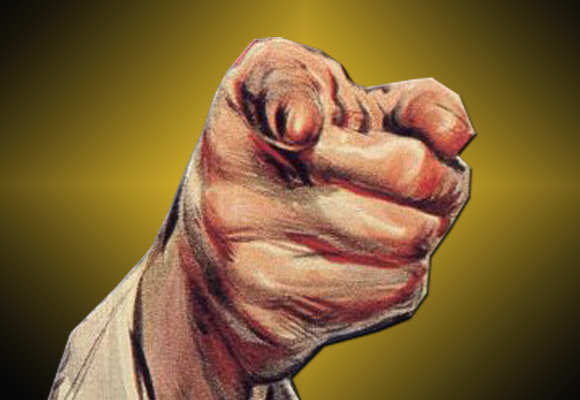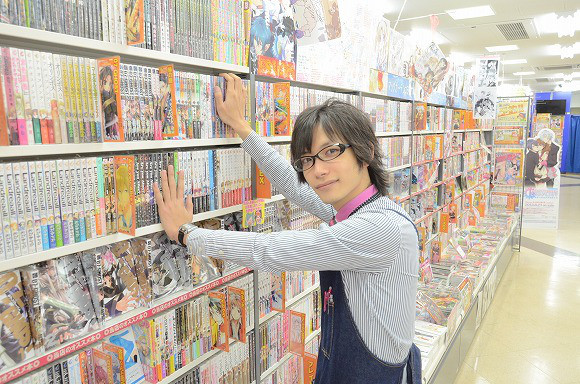
What would you say if someone were to call you an otaku? These days, people’s responses would likely fall into one of two extremes: “Hell, yeah! I’m a huge [insert hobby here] otaku!” or “Screw you! I have a life!”
Some might argue that the latter response is more likely to come from a true otaku, but very rarely do you hear someone admit to being an otaku with the nonchalant cadence of someone saying, “I’m a claims adjuster.” There’s always at least hint of bias in their tone whether its pride or embarrassment.
And yet such an emotionally charged label is still in debate with regards to its definition. To try to make sense of what an otaku is and whether it’s a good or bad thing, let’s start by looking at reasons people might say they aren’t an otaku. The following are four types of denial you might hear when calling someone an otaku as concocted by Japan’s Excite News.
1 – I keep myself together
An otaku denier might refer to their own sense of style or personal health regimen to dispel such as accusation. This is based on the stereotype that things like coordinating clothes, being aware of fashion trends, or keeping in shape are simply obstacles to what is truly important to the otaku.
Deniers may say that they are well aware of the latest styles. They might also tell you how they play sports or work out regularly, which for some reason would prevent them being able to list off the blood types of every member of the original line-up of Morning Musume.
Although watching a supermodel on a talk show admit they’re “a huge geek” about something inevitably feels hollow, the fact is being an otaku is not mutually exclusive to being genetically unlucky or lacking the ability to pick-up a nice shirt or two.
2 – I know how to act in social situations
Another widely held belief about otaku is that they only know about their particular interest and nothing beyond it. Such involvement in their hobby leads to a partial detachment from society at large.
This can be especially crippling in settings where others around them might not know all the differences between a 9300 series and a 5500 series Hanshin electric train. As such, calling someone an otaku might lead to a retort such as “I know how to talk to people,” or “I don’t talk about this stuff if other people aren’t interested.”
However, much like fashion, conversation is an art that people of all walks of life either excel at or flounder in. Even the most hardcore otaku possessed with the gift of the gab can find something universal to chat about like the weather or food.
3 – I’m not an otaku, I’m a fan
Ultimately the line drawn between “otaku” and a “fan” is the depth of knowledge a person possess about something and the amount of their life they are willing to invest in it. This is very hard to quantify and is basically up to the judgment of the parties involved. Some go so far as to classify it like an addiction, saying that an otaku is so deep into an interest that it adversely affects their life. Anything beneath that is simply a “fan.”
This ambiguity gives an otaku denier some leeway in shrugging off their obsession as just a passing phase or innocent pastime. They might say that they’re “into a lot of stuff” or that “I just get really into something and then move on to something else when I’m tired of it,” and that none of this really makes them an otaku. Those are reasonable excuses but also sound a little like the “I can quit anytime I want” excuse of an addict and could generate the same disbelief in the accuser.
4 – Compared to a real otaku, I’m just a piker
Probably the most common and diplomatic way to defuse an otaku labelling is by humbly admitting a lack of the level of knowledge and passion that one requires to be a true otaku.
The previous three excuses involve a sort of over-contempt for the otaku lifestyle that almost belies the denier’s true feelings. They deal more in prejudices than in logic. It feels like when a politician spouts out anti-gay rhetoric only to be revealed as gay himself.
However, this fourth method was what most netizens identified with and seems to close in on what it truly means to be an otaku. “I’m number four. I don’t go to comiket, I don’t chase voice actors across the country, and I don’t go on wild shopping sprees.” read one comment while many others echoed, “I’m not an otaku. I just like anime, manga, and video games.”
Self-proclaimed otaku commenters agreed, stressing that their definition of otaku does not include fans of anime, saying: “Number 4 applies to people who watch anime; higher level otaku are into erotic manga,” and, “Otaku is someone who is absorbed into one thing; anime, moe, sci-fi, idols, or even trains. Watching anime doesn’t make one an otaku. Too many people misunderstand that meaning.”
■ Otaku relativity
The above comments are just a few in yet another lengthy debate over what is or isn’t otaku that this Excite list had spawned. You could take the clinical addiction criteria to defining an otaku as an unhealthy fan, but that’s a pretty grim assessment.
On the other hand, according to remarks made by people immersed in typical otaku hobbies like idols and moe, there seems to be a sentiment to protect the concept of a pure otaku lifestyle from being coopted into mainstream culture such as by casual anime viewers. That seems fair, but people still have their own preconceptions of what exactly an otaku is, leaving the word highly vulnerable to reinterpretation.
The bottom line is, “otaku” is in the eyes of the beholder. For better or worse, it’s a label used by society in all its levels differently. The swimsuit model who occasionally plays Nintendo may be an “otaku” to her friends regardless of what you or anyone else thinks so in her world she’s an otaku; the kid in school who never misses an episode of Pokémon might be an otaku; the guy whose bedroom is a shrine to Super Sonico and has about a dozen of her booby-toting hug pillows is an otaku. That’s just the way it is.
Source: Excite News via My Game News Flash (Japanese)
Images: RocketNews24



 The reason why the best spouse for an otaku might not be another otaku
The reason why the best spouse for an otaku might not be another otaku How nerdy are you? Use this handy formula to calculate your “otaku coefficient”
How nerdy are you? Use this handy formula to calculate your “otaku coefficient” Adult otaku reflects on why it’s now easier for Japanese anime fans to be open about their hobby
Adult otaku reflects on why it’s now easier for Japanese anime fans to be open about their hobby 10 signs you might not be an otaku anymore
10 signs you might not be an otaku anymore Large majority of otaku in Japan want to keep being otaku after having kids, survey says
Large majority of otaku in Japan want to keep being otaku after having kids, survey says Japan Extreme Budget Travel! A trip from Tokyo to Izumo for just 30,000 yen [Part 1]
Japan Extreme Budget Travel! A trip from Tokyo to Izumo for just 30,000 yen [Part 1] Ghibli’s Kiki’s Delivery Service returns to theaters with first-ever IMAX screenings and remaster
Ghibli’s Kiki’s Delivery Service returns to theaters with first-ever IMAX screenings and remaster How to cook miso soup (the right way) in a few simple steps【RocketKitchen】
How to cook miso soup (the right way) in a few simple steps【RocketKitchen】 The meaning of the mandarin and 6 other Japanese New Year traditions explained
The meaning of the mandarin and 6 other Japanese New Year traditions explained School Lunch in Japan 【You, Me, And A Tanuki】
School Lunch in Japan 【You, Me, And A Tanuki】 Japanese security polearm maker’s takedown videos are crazy, products look crazy effective【Vids】
Japanese security polearm maker’s takedown videos are crazy, products look crazy effective【Vids】 Supercomputer noodles bring the magic of Fugaku to the dining table
Supercomputer noodles bring the magic of Fugaku to the dining table Saitama is home to the best strawberries in Japan that you’ve probably never even heard of
Saitama is home to the best strawberries in Japan that you’ve probably never even heard of Infographic shows how working culture differs across the globe
Infographic shows how working culture differs across the globe Tokyo hotel lets you make your stay a Sanrio one with special My Melody and Kuromi rooms【Pics】
Tokyo hotel lets you make your stay a Sanrio one with special My Melody and Kuromi rooms【Pics】 The 10 most annoying things foreign tourists do on Japanese trains, according to locals
The 10 most annoying things foreign tourists do on Japanese trains, according to locals Starbucks Japan releases new sakura goods and drinkware for cherry blossom season 2026
Starbucks Japan releases new sakura goods and drinkware for cherry blossom season 2026 Is Sapporio’s Snow Festival awesome enough to be worth visiting even if you hate the snow? [Pics]
Is Sapporio’s Snow Festival awesome enough to be worth visiting even if you hate the snow? [Pics] Japan has trams that say “sorry” while they ride around town…but why?
Japan has trams that say “sorry” while they ride around town…but why? Tokyo Skytree turns pink for the cherry blossom season
Tokyo Skytree turns pink for the cherry blossom season Highest Starbucks in Japan set to open this spring in the Tokyo sky
Highest Starbucks in Japan set to open this spring in the Tokyo sky Japan’s new “Cunte” contact lenses aren’t pronounced like you’re probably thinking they are
Japan’s new “Cunte” contact lenses aren’t pronounced like you’re probably thinking they are Shibuya Station’s Hachiko Gate and Yamanote Line stairway locations change next month
Shibuya Station’s Hachiko Gate and Yamanote Line stairway locations change next month Yakuzen ramen restaurant in Tokyo is very different to a yakuza ramen restaurant
Yakuzen ramen restaurant in Tokyo is very different to a yakuza ramen restaurant Starbucks Japan adds new sakura Frappuccino and cherry blossom drinks to the menu
Starbucks Japan adds new sakura Frappuccino and cherry blossom drinks to the menu Japan’s newest Shinkansen has no seats…or passengers [Video]
Japan’s newest Shinkansen has no seats…or passengers [Video] Foreigners accounting for over 80 percent of off-course skiers needing rescue in Japan’s Hokkaido
Foreigners accounting for over 80 percent of off-course skiers needing rescue in Japan’s Hokkaido Super-salty pizza sends six kids to the hospital in Japan, linguistics blamed
Super-salty pizza sends six kids to the hospital in Japan, linguistics blamed Starbucks Japan unveils new sakura Frappuccino for cherry blossom season 2026
Starbucks Japan unveils new sakura Frappuccino for cherry blossom season 2026 Foreign tourists in Japan will get free Shinkansen tickets to promote regional tourism
Foreign tourists in Japan will get free Shinkansen tickets to promote regional tourism Take a trip to Japan’s Dododo Land, the most irritating place on Earth
Take a trip to Japan’s Dododo Land, the most irritating place on Earth Naruto and Converse team up for new line of shinobi sneakers[Photos]
Naruto and Converse team up for new line of shinobi sneakers[Photos] Is China’s don’t-go-to-Japan warning affecting the lines at a popular Tokyo gyukatsu restaurant?
Is China’s don’t-go-to-Japan warning affecting the lines at a popular Tokyo gyukatsu restaurant? Survey asks foreign tourists what bothered them in Japan, more than half gave same answer
Survey asks foreign tourists what bothered them in Japan, more than half gave same answer Japan’s human washing machines will go on sale to general public, demos to be held in Tokyo
Japan’s human washing machines will go on sale to general public, demos to be held in Tokyo Starbucks Japan releases new drinkware and goods for Valentine’s Day
Starbucks Japan releases new drinkware and goods for Valentine’s Day We deeply regret going into this tunnel on our walk in the mountains of Japan
We deeply regret going into this tunnel on our walk in the mountains of Japan Studio Ghibli releases Kodama forest spirits from Princess Mononoke to light up your home
Studio Ghibli releases Kodama forest spirits from Princess Mononoke to light up your home Major Japanese hotel chain says reservations via overseas booking sites may not be valid
Major Japanese hotel chain says reservations via overseas booking sites may not be valid Put sesame oil in your coffee? Japanese maker says it’s the best way to start your day【Taste test】
Put sesame oil in your coffee? Japanese maker says it’s the best way to start your day【Taste test】 No more using real katana for tourism activities, Japan’s National Police Agency says
No more using real katana for tourism activities, Japan’s National Police Agency says Nearly 70 percent of young Japanese women self-identify as otaku in survey
Nearly 70 percent of young Japanese women self-identify as otaku in survey A love of anime can protect you from religious solicitors in Japan, otaku discovers
A love of anime can protect you from religious solicitors in Japan, otaku discovers The pros and cons of having otaku parents, according to Japanese anime fans
The pros and cons of having otaku parents, according to Japanese anime fans Language of the otaku has infiltrated our Internet forums
Language of the otaku has infiltrated our Internet forums The four new classes of modern otaku
The four new classes of modern otaku According to this encyclopedia of Japanese otaku fashion, which one are you?
According to this encyclopedia of Japanese otaku fashion, which one are you? “Otaku are the biggest suckers” says Pokémon artist
“Otaku are the biggest suckers” says Pokémon artist Sustainable Otaku Goals: A framework to help you avoid fan burnout
Sustainable Otaku Goals: A framework to help you avoid fan burnout Could you marry an otaku? Japanese people rank the geek hobbies they’d let slide for love
Could you marry an otaku? Japanese people rank the geek hobbies they’d let slide for love Furious train otaku in Japan confront foreign bicyclist after he gets in the way of their cameras
Furious train otaku in Japan confront foreign bicyclist after he gets in the way of their cameras